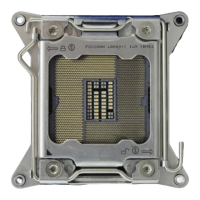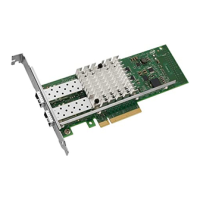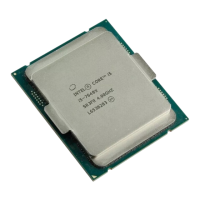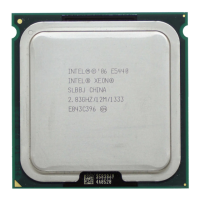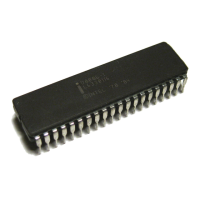Intel® Xeon® Processor E5-2600 Product Family Uncore Performance Monitoring
130 Reference Number: 327043-001
VNA_CREDITS_ACQUIRED
• Title: VNA credit Acquisitions
• Category: LINK_VNA_CREDITS Events
• Event Code: 0x33
• Max. Inc/Cyc: 4, Register Restrictions: 0-1
• Definition: Number of Intel® QPI VNA Credit acquisitions. This event can be used in conjunction
with the VNA In-Use Accumulator to calculate the average lifetime of a credit holder. VNA credits
are used by all message classes in order to communicate across Intel® QPI. If a packet is unable
to acquire credits, it will then attempt to use credts from the VN0 pool. Note that a single packet
may require multiple flit buffers (i.e. when data is being transfered). Therefore, this event will
increment by the number of credits acquired in each cycle. Filtering based on message class is not
provided. One can count the number of packets transfered in a given message class using an qfclk
event.
VNA_CREDITS_REJECT
• Title: VNA Credit Reject
• Category: LINK_VNA_CREDITS Events
• Event Code: 0x34
• Max. Inc/Cyc: 1, Register Restrictions: 0-1
• Definition: Number of attempted VNA credit acquisitions that were rejected because the VNA
credit pool was full (or almost full). It is possible to filter this event by message class. Some pack-
ets use more than one flit buffer, and therefore must acquire multiple credits. Therefore, one could
get a reject even if the VNA credits were not fully used up. The VNA pool is generally used to pro-
vide the bulk of the Intel® QPI bandwidth (as opposed to the VN0 pool which is used to guarantee
forward progress). VNA credits can run out if the flit buffer on the receiving side starts to queue up
substantially. This can happen if the rest of the uncore is unable to drain the requests fast enough.
VNA_CREDIT_CYCLES_OUT
• Title: Cycles with no VNA credits available
• Category: LINK_VNA_CREDITS Events
• Event Code: 0x31
• Max. Inc/Cyc: 1, Register Restrictions: 0-1
• Definition: Number of Intel® QPI uclk cycles when the transmitted has no VNA credits available
and therefore cannot send any requests on this channel. Note that this does not mean that no flits
Table 2-141. Unit Masks for VNA_CREDITS_REJECT
Extension
umask
[15:8]
Description
HOM bxxxxxxx1 HOM Message Class:
Filter for the Home (HOM) message class. HOM is generally used to
send requests, request responses, and snoop responses.
SNP bxxxxxx1x SNP Message Class:
Filter for Snoop (SNP) message class. SNP is used for outgoing
snoops. Note that snoop responses flow on the HOM message class.
NDR bxxxxx1xx NDR Message Class:
NDR packets are used to transmit a variety of protocol flits including
grants and completions (CMP).
DRS bxxxx1xxx DRS Message Class:
Filter for Data Response (DRS). DRS is generally used to transmit
data with coherency. For example, remote reads and writes, or
cache to cache transfers will transmit their data using DRS.
NCB bxxx1xxxx NCB Message Class:
Filter for Non-Coherent Broadcast (NCB). NCB is generally used to
transmit data without coherency. For example, non-coherent read
data returns.
NCS bxx1xxxxx NCS Message Class:
Filter for Non-Coherent Standard (NCS).
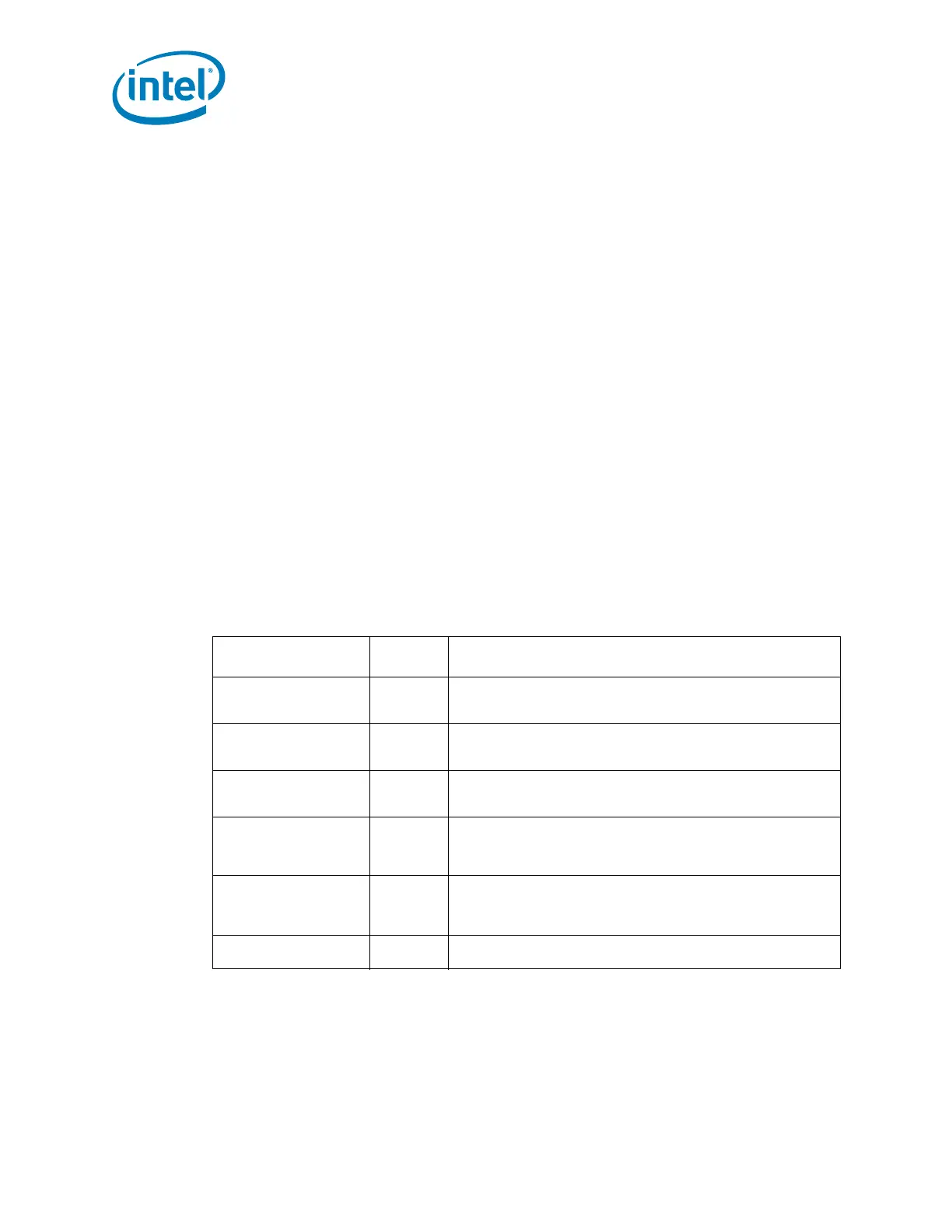